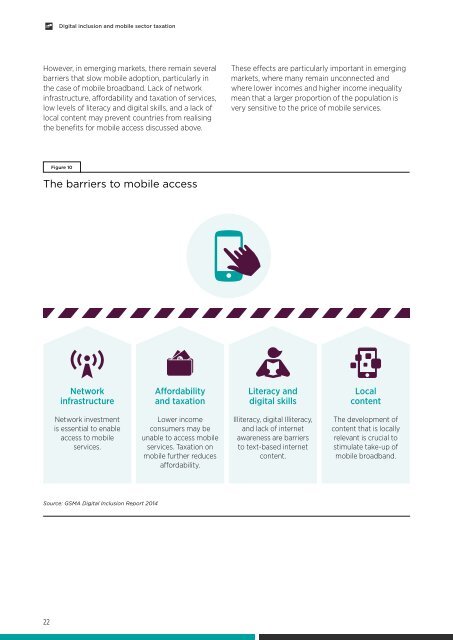Create successful ePaper yourself
Turn your PDF publications into a flip-book with our unique Google optimized e-Paper software.
Digital inclusion and mobile sector taxation<br />
However, in emerging markets, there remain several<br />
barriers that slow mobile adoption, particularly in<br />
the case of mobile broadband. Lack of network<br />
infrastructure, affordability and taxation of services,<br />
low levels of literacy and digital skills, and a lack of<br />
local content may prevent countries from realising<br />
the benefits for mobile access discussed above.<br />
These effects are particularly important in emerging<br />
markets, where many remain unconnected and<br />
where lower incomes and higher income inequality<br />
mean that a larger proportion of the population is<br />
very sensitive to the price of mobile services.<br />
Figure 10<br />
The barriers to mobile access<br />
Network<br />
infrastructure<br />
Affordability<br />
and taxation<br />
Literacy and<br />
digital skills<br />
Local<br />
content<br />
Network investment<br />
is essential to enable<br />
access to mobile<br />
services.<br />
Lower income<br />
consumers may be<br />
unable to access mobile<br />
services. Taxation on<br />
mobile further reduces<br />
affordability.<br />
Illiteracy, digital Illiteracy,<br />
and lack of internet<br />
awareness are barriers<br />
to text-based internet<br />
content.<br />
The development of<br />
content that is locally<br />
relevant is crucial to<br />
stimulate take-up of<br />
mobile broadband.<br />
Source: GSMA Digital Inclusion Report 2014<br />
22


